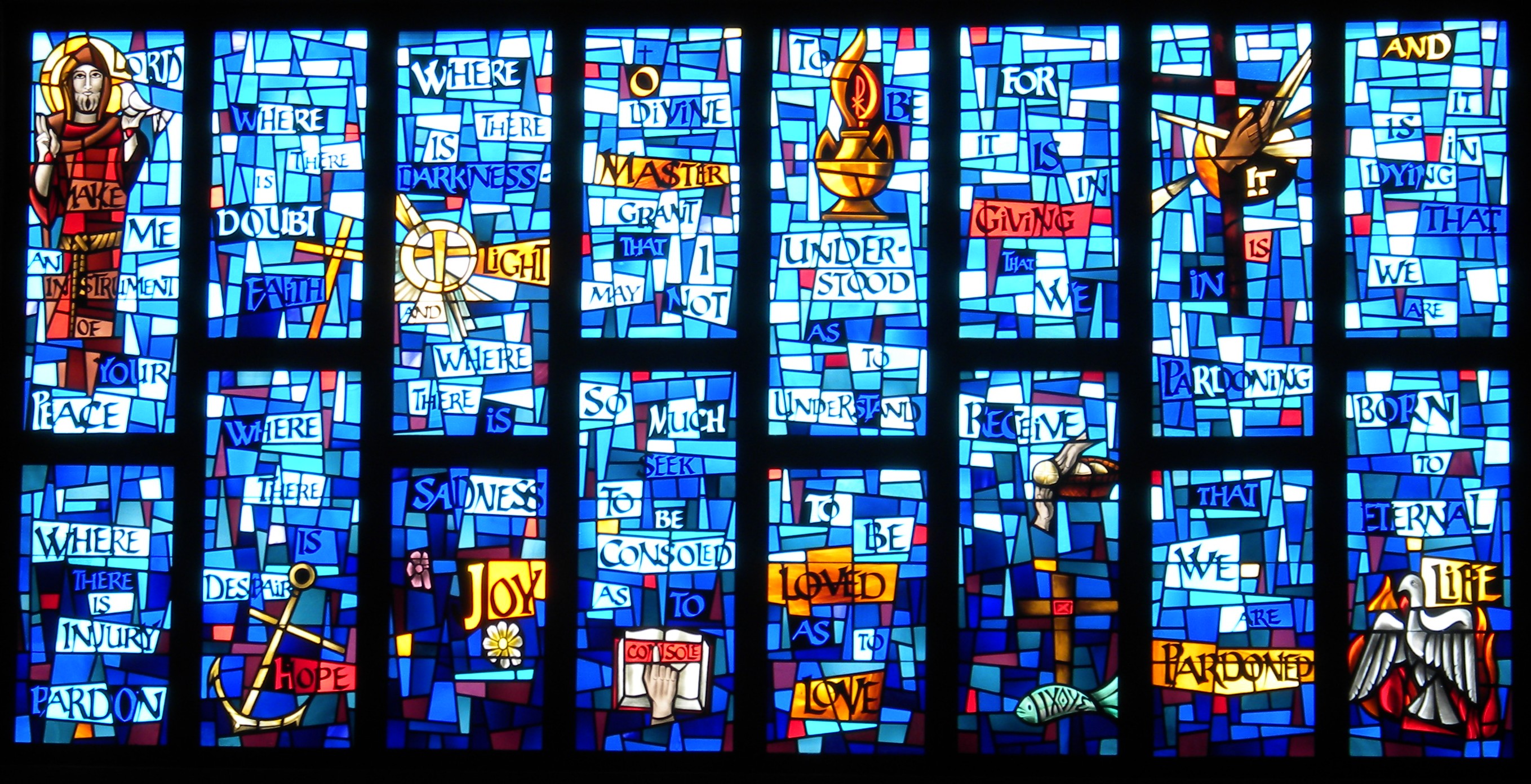
The Beatitudes of Penance
Beloved Sisters and Brothers of Penance,
Regardless of provenance, the Franciscan Peace Prayer offers a wonderful Lenten source of meditation. In the Prologue of our Secular Franciscan Rule, St. Francis addresses us as Brothers and Sisters of Penance, and Penance (Fasting or Self-Denial) is one of the three great works of Lent along with Charity (Almsgiving or Self-Giving) and Prayer. Lent should therefore be "our season."
Just as our Lord's Beatitudes in the Sermon on the Mount (Matthew 5:1-12) offer a series of contradictory contrasts (e.g., mourners will be comforted; poor in spirit will receive the kingdom of heaven), so the Franciscan Peace Prayer offers such a similar series of contrasts that make the sacrifice involved truly "penitential," a true turning away from self and a turning to God.
Let us take a closer look at these contrasts. (The Prayer is given in entirety at the conclusion of this meditation.) What is perhaps the greatest evil in the world? Hatred. What is the greatest good? Love. Where does our contradictory prayer start, but here, sowing love where there is hate. If it is seemingly impossible to bring love from hatred, what is most difficult to bring from injury? Pardon. Most of us would probably respond to personal injury with revenge or a law suit. Similarly, how does one bring joy from sadness, truth from error, faith from doubt, light from darkness, hope from despair?
I would argue that all of the seven contrasts are impossible in and with our own limited powers. We need the help of God. Darkness only brings darkness; how can love come from hate, hope from despair? Only God can bring such great good from such great evil.
In a similar way, we need to turn from the devil, the flesh and the world, even turning from self and turning toward God, to be like the Lord, who came not to be served, but to serve (Matthew 20:28). Only when we decrease and the Lord increases can we hope not to be consoled, but to console; seek not to be understood, but to understand; strive not to be loved, but to love. It's that Lenten call of the Lord, seen in Isaiah to active, not passive, penance: "Is this the manner of fasting I wish, of keeping a day of penance: That a man bow his head like a reed, and lie in sackcloth and ashes? Do you call this a fast, a day acceptable to the LORD? This, rather, is the fasting that I wish: releasing those bound unjustly, untying the thongs of the yoke; Setting free the oppressed, breaking every yoke; Sharing your bread with the hungry, sheltering the oppressed and the homeless; Clothing the naked when you see them, and not turning your back on your own" (Isaiah 58:5-7).
The final trinity of opposites take us completely from self toward God. We are to give if we are to receive; we are to forgive if we are to receive forgiveness; we must die if we are to gain eternal life.
Like the Lord's Beatitudes, these Beatitudes of Penance are meant to challenge us, to make us see that without grace, none of this is possible, but with God all things are possible. God must be in the equation, or we will fail in the mystery.
Let us pray that this Holy Season of Lent 2011 be peaceful, fruitful and faith-filled for all our Franciscan family. May our Lord bless us and our family with graces sufficient to accomplish the Lord's Holy Will in all our lives.
Tom
The Peace Prayer of St. Francis
Lord make me an instrument of your peace
Where there is hatred,
Let me sow love;
Where there is injury, pardon;
Where there is error, truth;
Where there is doubt, faith;
Where there is despair, hope;
Where there is darkness, light;
And where there is sadness, Joy.
O Divine Master grant that I may not so much seek to be consoled
As to console;
To be understood, as to understand;
To be loved, as to love.
For it is in giving that we receive,
It is in pardoning that we are pardoned,
And it is in dying that we are born to eternal life.